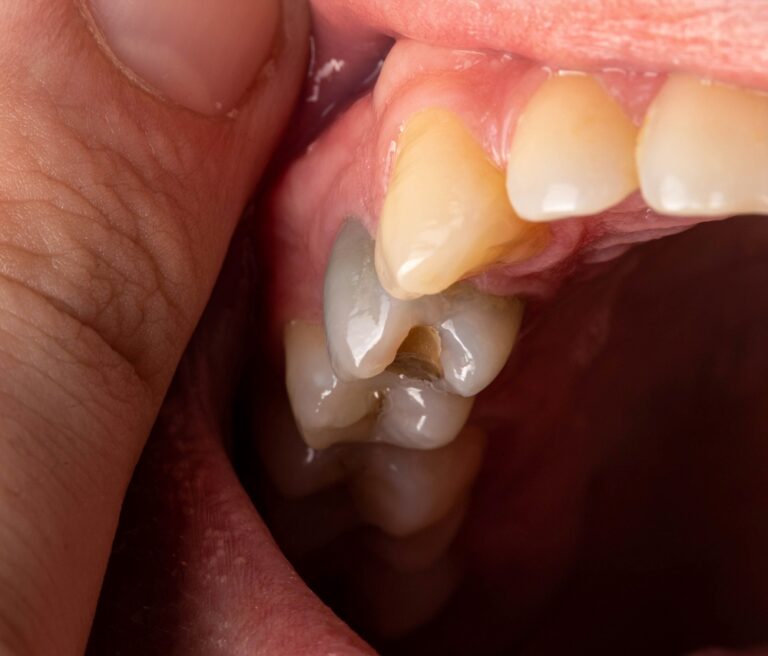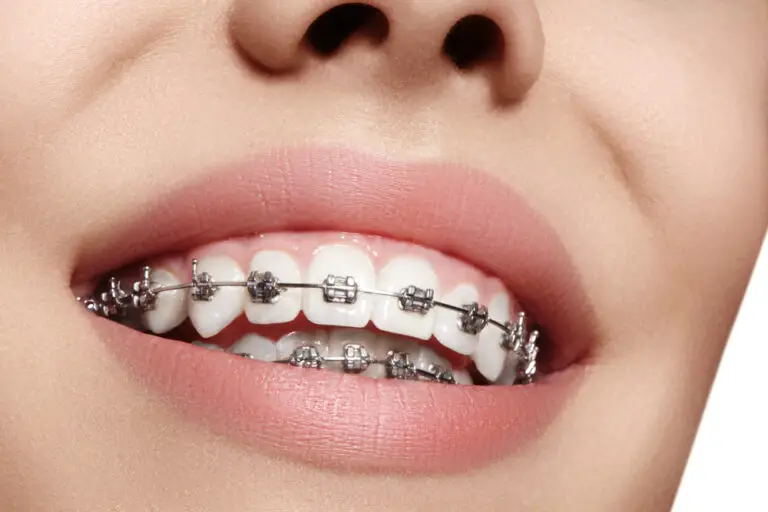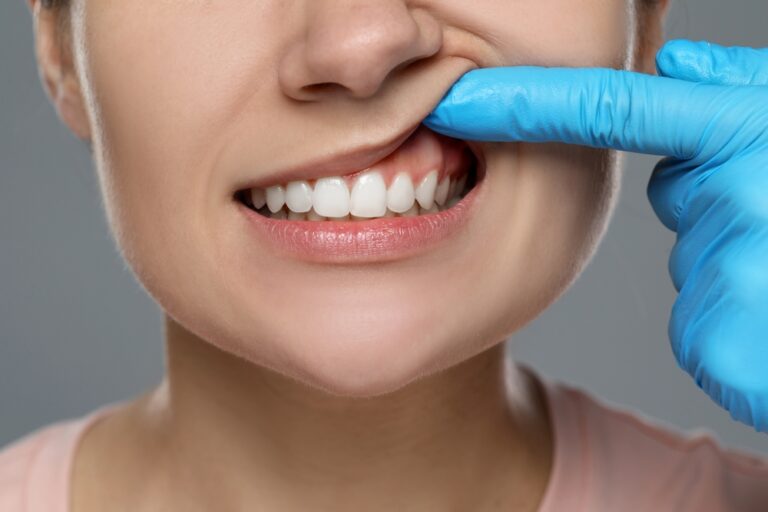If you’re a guinea pig owner, you may be wondering if your furry friend can survive without teeth. The answer is yes, guinea pigs can survive without teeth, but it requires some extra care and attention from you. Guinea pigs’ teeth never stop growing, so any broken or lost teeth will almost always regrow. However, if your guinea pig loses all its teeth, it may need some help from you to stay healthy.
Without teeth, guinea pigs will struggle to eat their usual diet of hay, vegetables, and pellets. To ensure they get the nutrition they need, you’ll need to modify their diet by providing softer foods that are easier to eat. You can offer your guinea pig mashed vegetables, soft fruits, and soaked pellets. Additionally, you can provide your guinea pig with hay cubes, which are softer and easier to chew than regular hay. It’s important to monitor your guinea pig’s weight and overall health to ensure they are getting enough nutrition.
Understanding Guinea Pig’s Teeth
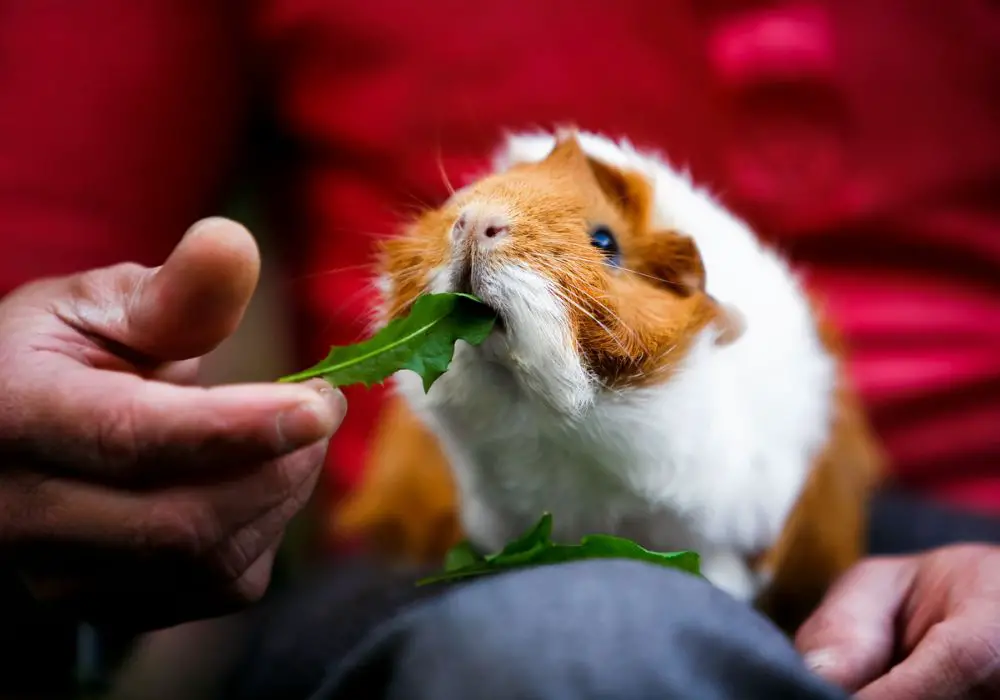
Guinea pigs have unique teeth that require special attention. Their teeth never stop growing, so they need to be constantly filed down to prevent overgrowth. In this section, you will learn about guinea pig’s teeth, including how many teeth they have, why they lose teeth, and how to care for their teeth.
How Many Teeth Do Guinea Pigs Have?
Guinea pigs have a total of 20 teeth, which are divided into three types: incisors, premolars, and molars. The incisors are the four front teeth that are used for cutting and biting. The premolars are the teeth located behind the incisors, and the molars are the teeth at the back of the mouth.
Why Do Guinea Pigs Lose Teeth?
Guinea pigs can lose their teeth due to a variety of reasons, including injury or accident, vitamin C deficiency, vitamin D deficiency, and genetics. If your guinea pig loses a tooth, it will almost always regrow, but it may take some time.
How to Care for Guinea Pig’s Teeth
Caring for your guinea pig’s teeth is essential to their overall health and well-being. Here are some tips to help you care for your guinea pig’s teeth:
- Provide your guinea pig with plenty of hay to chew on. This will help keep their teeth clean and healthy.
- Avoid giving your guinea pig sugary treats, as these can lead to cavities.
- Have your veterinarian check your guinea pig’s teeth regularly to ensure they are healthy and not overgrown.
- If your guinea pig has lost a tooth, you may need to assist them with feeding until the tooth regrows.
By following these tips, you can help ensure that your guinea pig’s teeth stay healthy and strong.
Impact of Teeth Loss on Guinea Pigs
Losing teeth can be a serious issue for guinea pigs as their teeth never stop growing. Guinea pigs need their teeth for eating, grooming, and defending themselves from predators. If a guinea pig loses its teeth, it can cause several problems that can affect its overall health and well-being.
Difficulty Eating
Without teeth, guinea pigs may struggle to eat their usual diet of hay, vegetables, and pellets. They may have difficulty biting and chewing, which can lead to weight loss and malnutrition. You may need to modify their diet to softer foods or provide them with mashed or pureed food to help them eat.
Pain and Discomfort
When guinea pigs lose their teeth, they may experience pain and discomfort. This can make them reluctant to eat or drink, leading to dehydration and further health issues. You should monitor your guinea pig’s behavior and look for signs of pain, such as drooling, pawing at their mouth, or reluctance to eat.
Dental Problems
Teeth loss can lead to dental problems such as overgrown teeth, which can cause pain, abscesses, and infections. Overgrown teeth can also cause damage to the guinea pig’s mouth, tongue, and cheeks. Regular check-ups with a veterinarian can help prevent dental problems and ensure that any issues are addressed promptly.
Vitamin Deficiencies
Guinea pigs need vitamin C for healthy teeth and gums. Without teeth, they may be at risk of developing a vitamin C deficiency, which can lead to scurvy. You may need to provide your guinea pig with vitamin C supplements or foods rich in vitamin C to ensure they get the nutrients they need.
In conclusion, guinea pigs need their teeth for a healthy and happy life. Losing teeth can cause several problems that can affect their health and well-being. If your guinea pig loses its teeth, you should consult with a veterinarian to ensure they get the care they need.
Causes of Teeth Loss in Guinea Pigs
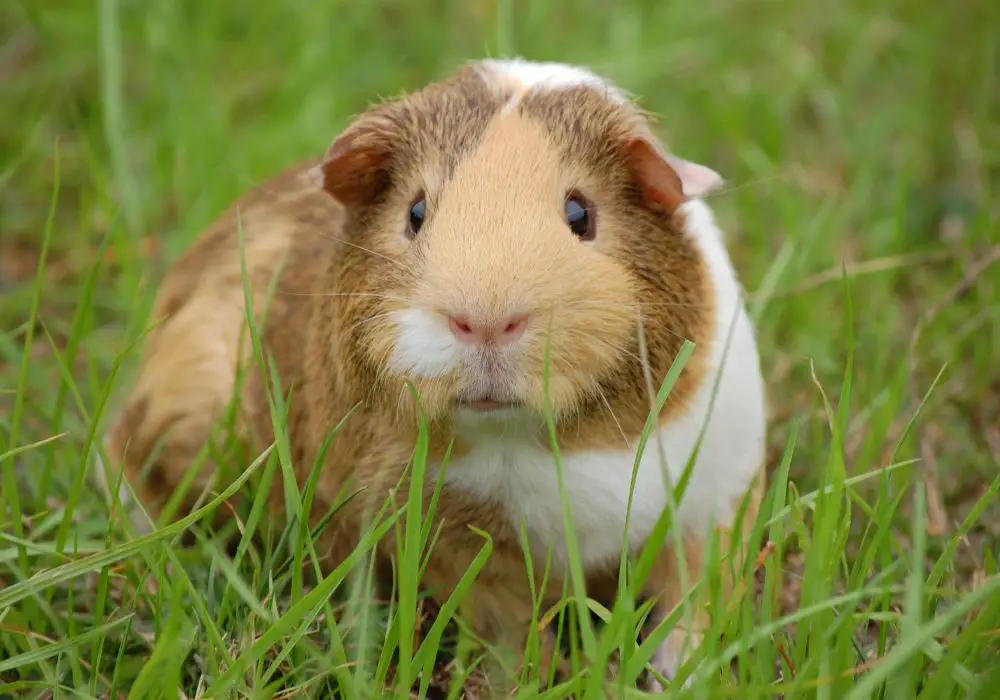
Guinea pigs are known for their continuously growing teeth. However, there are certain factors that can lead to teeth loss in guinea pigs. Here are some of the most common causes of teeth loss in guinea pigs.
Poor Nutrition
Poor nutrition is one of the most common causes of teeth loss in guinea pigs. Guinea pigs require a diet that is high in fiber and vitamin C. A lack of these nutrients can lead to dental problems, including teeth loss. In addition, a diet that is low in calcium and phosphorus can also contribute to teeth loss.
To ensure that your guinea pig is getting the right nutrition, make sure to provide them with a diet that is high in hay, fresh vegetables, and fruits. You can also supplement their diet with vitamin C and calcium if necessary.
Genetic Factors
Some guinea pigs may be more prone to teeth problems due to genetic factors. For example, some guinea pigs may have malocclusion, which is a condition where the teeth do not align properly. This can lead to overgrown teeth, which can eventually lead to teeth loss.
If you suspect that your guinea pig may have a genetic condition that is contributing to their teeth problems, it’s important to consult with a veterinarian who specializes in small animals.
Injury
Injury is another common cause of teeth loss in guinea pigs. Guinea pigs may injure their teeth by chewing on hard objects, such as cage bars or toys. In addition, falls or other accidents can also lead to teeth loss.
To prevent injury, make sure to provide your guinea pig with safe chew toys and a cage that is free of hazards. If your guinea pig does suffer an injury, it’s important to seek veterinary care as soon as possible.
In conclusion, teeth loss in guinea pigs can be caused by a variety of factors, including poor nutrition, genetic factors, and injury. By providing your guinea pig with a healthy diet, safe environment, and prompt veterinary care, you can help prevent teeth loss and ensure that your guinea pig stays healthy and happy.
Signs of Teeth Problems in Guinea Pigs
Guinea pigs have unique teeth that grow continuously throughout their lives. Dental problems are common in guinea pigs, and they require immediate attention. Here are some signs that your guinea pig may have dental problems:
- Loss of appetite: Guinea pigs love to eat, and they have a constant need to chew. If you notice that your guinea pig is not eating as much as usual or is only eating soft foods, it could be a sign of dental problems.
- Weight loss: If your guinea pig is not eating, it will lose weight. Weight loss is a common symptom of dental problems in guinea pigs.
- Drooling: Guinea pigs do not drool unless they have dental problems. Excessive drooling is a sign that your guinea pig may have overgrown teeth, abscesses, or other dental issues.
- Difficulty eating: If your guinea pig is having difficulty eating, it could be a sign of dental problems. Guinea pigs use their front teeth to grasp food and their back teeth to grind it. If their teeth are overgrown or misaligned, they will have difficulty eating.
- Chattering teeth: If your guinea pig is chattering its teeth, it could be a sign of pain or discomfort. Teeth chattering is a sign of dental problems in guinea pigs.
- Facial swelling: If your guinea pig has swelling around its face or jaw, it could be a sign of dental problems. Swelling is a sign of an abscess, which is a common dental problem in guinea pigs.
If you notice any of these signs, take your guinea pig to the vet immediately. Dental problems can be painful and can lead to serious health problems if left untreated.
Preventive Measures for Teeth Loss
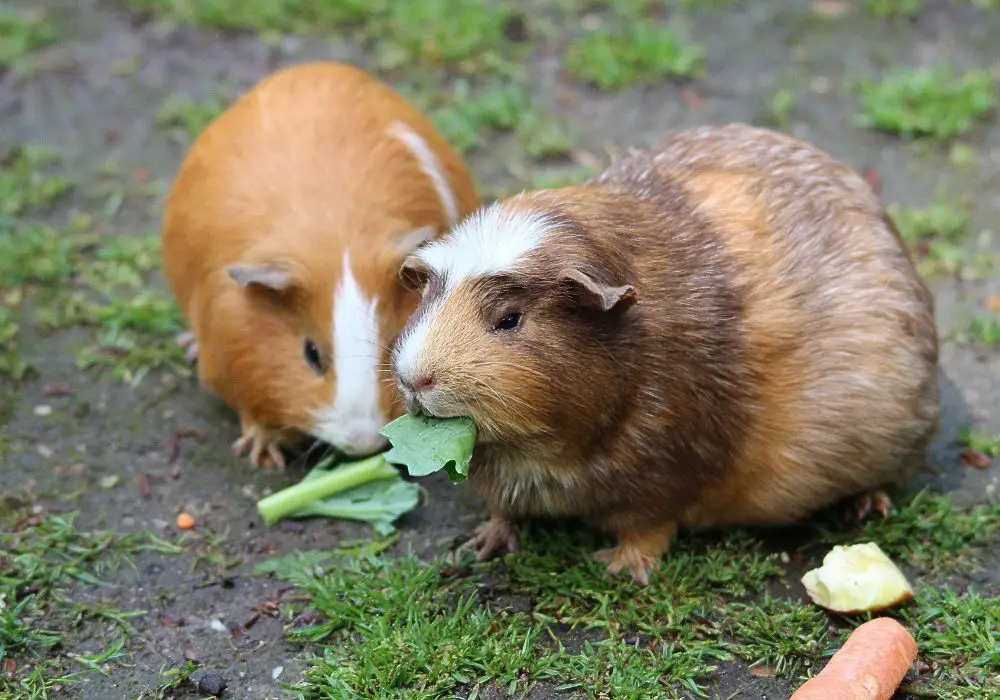
Losing teeth can be a serious problem for guinea pigs, as their teeth never stop growing and are essential for their survival. However, there are several preventive measures you can take to ensure that your furry friend keeps their teeth healthy and strong.
Proper Diet
A guinea pig’s diet plays a crucial role in their dental health. It’s essential to provide them with a balanced diet that includes hay, fresh vegetables, and a small amount of fruit. Hay is particularly important as it helps wear down their teeth and prevents overgrowth. Make sure to avoid giving them sugary or starchy foods, as these can lead to dental problems and other health issues.
Regular Check-ups
Regular check-ups with a veterinarian who specializes in small animals are essential for maintaining your guinea pig’s dental health. During these check-ups, the vet will examine your guinea pig’s teeth and check for any signs of overgrowth, decay, or other dental problems. Early detection of dental issues can prevent more severe problems from developing.
Safe Play Environment
Providing your guinea pig with a safe play environment is also crucial for their dental health. Make sure their cage is appropriately sized, with plenty of room to move around and play. Provide them with toys and objects to chew on, such as untreated wooden blocks or sticks, to help wear down their teeth naturally. Make sure to supervise them during playtime to prevent any accidents that could lead to dental injuries.
By following these preventive measures, you can help ensure that your guinea pig maintains healthy teeth and avoids dental problems. Remember to provide them with a balanced diet, schedule regular check-ups with a veterinarian, and create a safe play environment. With proper care, your guinea pig can live a happy and healthy life.
Treatment Options for Teeth Loss
If your guinea pig has lost its teeth, there are a few treatment options available to ensure that it can still live a happy and healthy life.
Veterinary Care
If your guinea pig has lost its teeth due to an injury or accident, it’s important to take it to a veterinarian as soon as possible. The vet will be able to examine your guinea pig’s mouth and determine the best course of treatment. In some cases, the vet may be able to reattach the lost teeth or provide other dental treatments to help your guinea pig’s teeth grow back.
Special Diet
If your guinea pig has lost its teeth due to age or malnutrition, it’s important to provide it with a special diet that is easy to chew and digest. Here are some tips for feeding a guinea pig with missing teeth:
- Offer soft foods: Soft foods such as mashed vegetables, cooked grains, and soft fruits are easier for guinea pigs to chew and digest.
- Provide hay alternatives: If your guinea pig can’t eat hay, try providing alternatives such as soft grasses or hay cubes.
- Offer vitamin C supplements: Guinea pigs need vitamin C to maintain healthy teeth and gums. If your guinea pig can’t eat foods that are high in vitamin C, talk to your vet about providing supplements.
By providing your guinea pig with the right care and diet, you can help it live a happy and healthy life even without its teeth.
Frequently Asked Questions
How fast do guinea pig teeth grow?
Guinea pigs’ teeth grow continuously throughout their lives. They can grow up to 1/8 inch per week. This growth rate can vary depending on factors such as age, diet, and genetics.
How many teeth do guinea pigs have?
Guinea pigs have 20 teeth in total. They have four incisors, which are located at the front of their mouth, and 16 molars, which are located at the back of their mouth.
How to trim guinea pig teeth?
It is not recommended to trim your guinea pig’s teeth unless they are overgrown or causing health problems. If you suspect your guinea pig’s teeth need trimming, consult with a veterinarian who has experience with guinea pigs.
How to clean guinea pig teeth?
Guinea pigs’ teeth are self-cleaning. They use their tongue to keep their teeth clean and free of debris. However, you can provide your guinea pig with chew toys, such as hay, to help keep their teeth healthy.
How long do guinea pigs live?
On average, guinea pigs live for 5 to 7 years. However, with proper care and nutrition, they can live up to 8 years or more.
What can I feed my guinea pig with a broken tooth?
If your guinea pig has a broken tooth, it is important to provide them with soft foods that are easy to chew. You can feed them mashed vegetables, soft fruits, and hay cubes. Avoid feeding them hard foods, such as seeds or nuts, as these can further damage their teeth.

